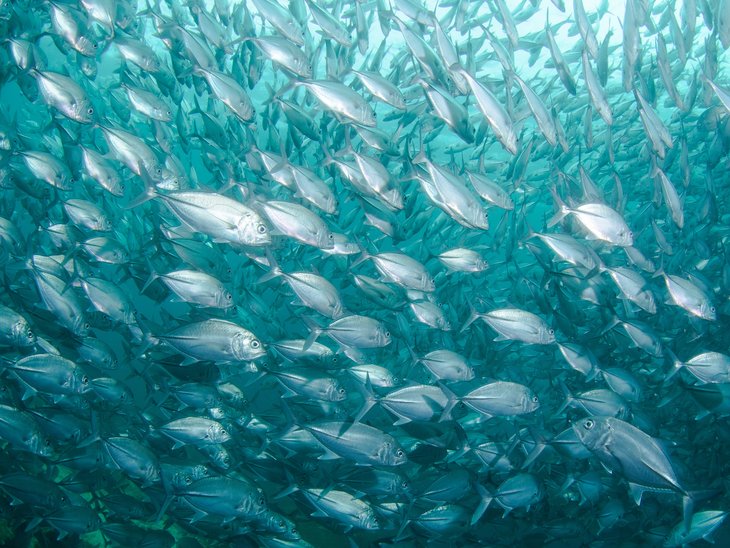The legal framework for marine management worldwide is the United Nations Convention on the Law of the Sea. It obliges the contracting states to co-operate on an international, European and national level and to effectively protect the marine environment. Other international agreements, regional sea conventions and a large number of national declarations of intent specify and underline this requirement. However, little action has taken place up to date and this has many different reasons.
From intention to action
Efforts are constantly increasing, but in many places there is a lack of political will, financial resources, qualified staff and the relevant specialised authorities to actually enforce applicable laws and regulations for the protection and sustainable use of the oceans. In addition, the tasks of marine management are spread across too many sectors and institutions that independently operate of each other. Their employees in turn, lack the tools and incentives for a coordinated approach across sectoral boundaries.
It is now clear that none of the major environmental crises of our oceans can be solved alone. Current research shows that the global climate, the biodiversity and the pollution crisis affects coasts, seas and oceans in an equal measure. The global community must therefore tackle the challenges together and consider the crises in a coherent manner. However, this requires a new holistic approach to marine management at all levels. This requires a greater willingness to cooperate as well as a growing sense of responsibility among all stakeholders and clear rules of liability in case of violations. There must also be transparent decision-making processes and new participation formats that can be used to resolve utilisation conflicts and to involve all stakeholders in the relevant discussions.
A reform of the marine administration is also necessary. Instead of rigid authorities, which are separated in different sectors, there should be a network-like decision-making structure, involving representatives from politics, economy, research and civil society. These networks should work on developing solutions to protect the ocean and to use its ressources sustainably across different topics and areas of responsibility. Innovative financing mechanisms are also required in order to effectively implement solutions successfully.









